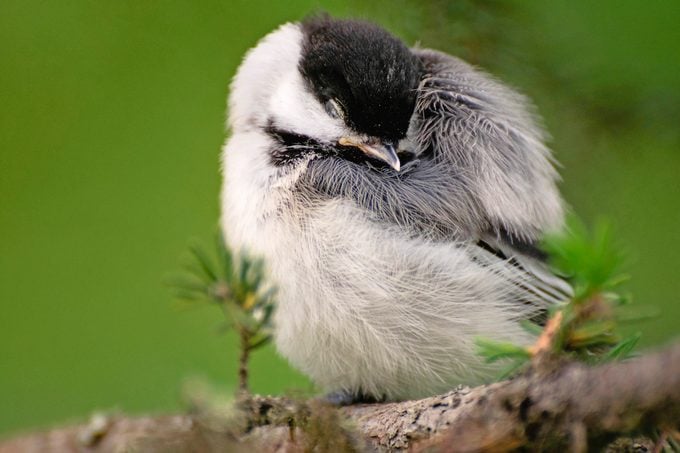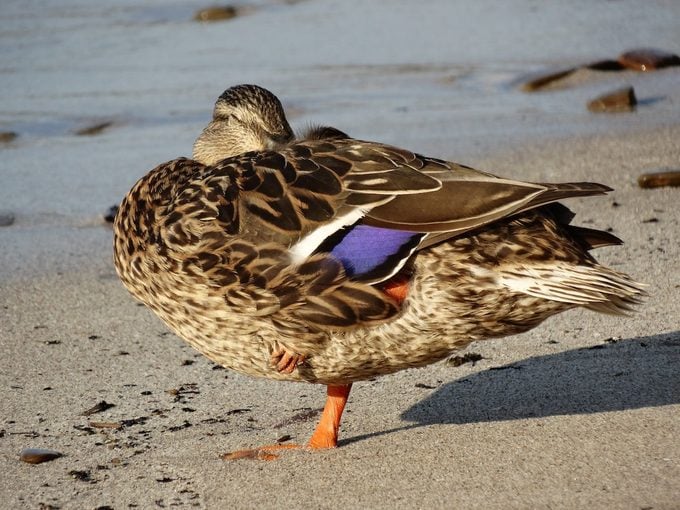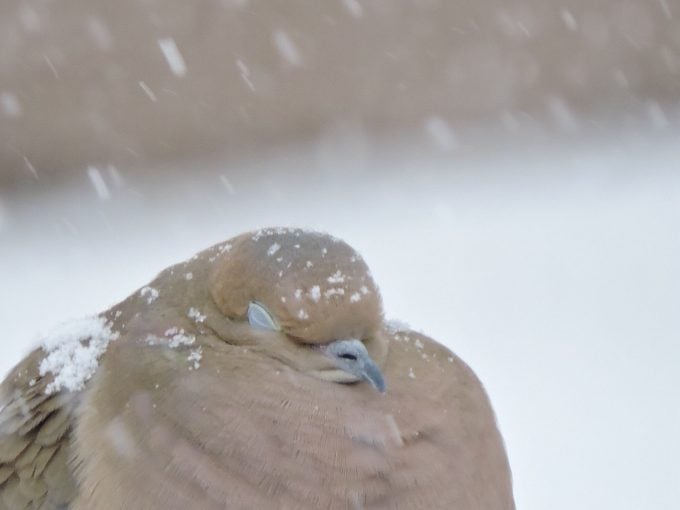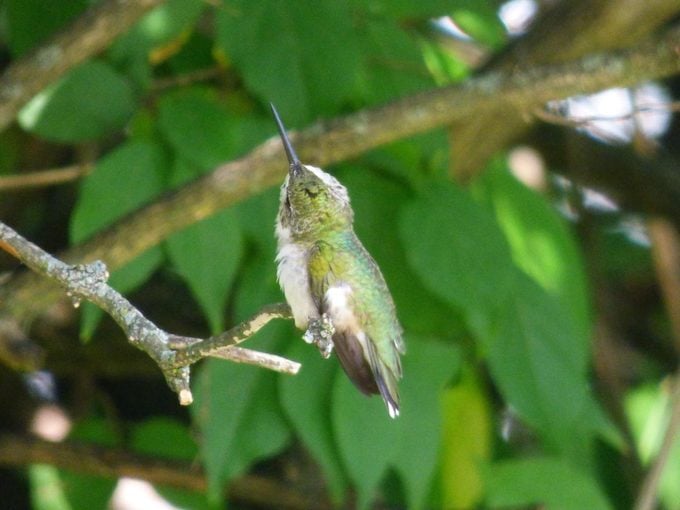Where Do Birds Sleep at Night?
Updated: Mar. 25, 2024
Unravel the mystery of where birds go to nap and rest after dark. Our bird experts answer your questions about where birds sleep at night.
Where Do Birds Sleep at Night?

Wild birds are good at finding shelter, according to birding experts Kenn and Kimberly Kaufman. Those that raise their young inside holes in trees, such as woodpeckers and bluebirds, often sleep in such cavities at night, at all times of year. Other kinds of birds find protected spots inside dense foliage in trees, shrubs or vines. They may perch close to the trunk on the downwind side.
Birds that live out in open fields or shores may simply hunker down where they are, facing into the wind. During stormy weather birds usually go to the kinds of spots where they sleep at night, or make an extra effort to find an even more sheltered place.
Nocturnal fliers like whip-poor-wills and owls are just getting going when the sun sets. But where do birds that are active during the day sleep at night? Most find a secluded spot to catch some shut-eye; however, sleep in the avian world is different than our rest.
Birds Take Naps

Instead of getting prolonged sleep at night, birds often take hundreds of short snoozes each day. In a variety of instances, birds are never really asleep—at least not in the way that people think. Half of a bird’s brain stays active while it is resting, all thanks to the phenomenon of unihemispheric slow-wave sleep. Remaining partially alert can help birds detect potential predators and adjust to changing environmental conditions.
Some birds even nap while flying. Magnificent frigatebirds, for example, sleep up to 12 hours per day when on land, but they are limited to less than an hour of rest per day when taking long cruises over the ocean, typically while they’re riding warm air currents.
Niels Rattenborg and colleagues report in Nature Communications that frigatebirds keep the eye that is connected to the awake and alert hemisphere of the brain facing the direction of flight. This gives a whole new meaning to thinking on the fly!
How Do Sleeping Birds Stay Warm?

Maintaining warmth is a challenge for sleeping birds at night. Feathers provide strong insulation, so birds tuck into themselves. As they snooze, ducks, geese and swans are often seen with their bills buried in their own feathers. Many species will also pull a leg up into their cozy little zones.
Birds rarely use nests as night roosts when they aren’t actively incubating eggs or babies. Only a few cavity nesters like nuthatches, wrens and chickadees take to nest boxes throughout the year. Acorn woodpeckers, bluebirds, pygmy nuthatches and tree swallows have all been documented communally roosting with small groups, each sharing the same cavities.
Birds Perch While Sleeping

The vast majority of songbirds are natural perchers. This holds true even while they sleep at night. Chalk it up to a bird’s physique: To hold up its body weight, a bird will instinctively tighten its tendons and clamp its feet onto a branch. Hummingbirds are the ultimate sleepers. Under extreme conditions, they’ve been found perched upside down, kind of like a bat. During cold spells, hummingbirds lower their metabolism and body temperature and enter an overnight state called torpor, which almost mimics hibernation in other animals.
Do Sleeping Birds Dream?
While they’re dozing, it’s unclear if birds dream, although they can experience bouts of rapid eye movement. Research in zebra finches has shown that brain neurons associated with song can be activated during sleep, yet this could simply be a way of reinforcing song learning instead of proof of dreaming.
Why Do Birds Sing at Night?
Hearing the cheerup cheerio song of an American robin after dark seems out of place. Yet robins, mockingbirds and many other daylight-loving birds belt out tunes at night for the same reasons they do during the day: to establish their territories and attract mates.
Noise pollution from humans lessens after dark, so the songs of birds are not drowned out. Research done on European robins in urban areas, for example, showed that nighttime was prime time for singing.
Do Birds Sleep in Their Nests?
Kenn and Kimberly say, “For most birds, the nest is just a cradle for their eggs and chicks, used only until the young birds can fly. Large birds, such as eagles, may reuse the same nest year after year. Some songbirds can refurbish and use a nest for a second time, but it’s more typical for them to build a new nest for every brood.
Birds that nest in holes, such as woodpeckers and bluebirds, may sleep inside the cavity during all seasons. However, the majority of bird species simply sleep in sheltered spots in trees or shrubs, or on the ground or open water, and they have no need for a nest to roost.”
Next. discover why birds flock together in winter.
